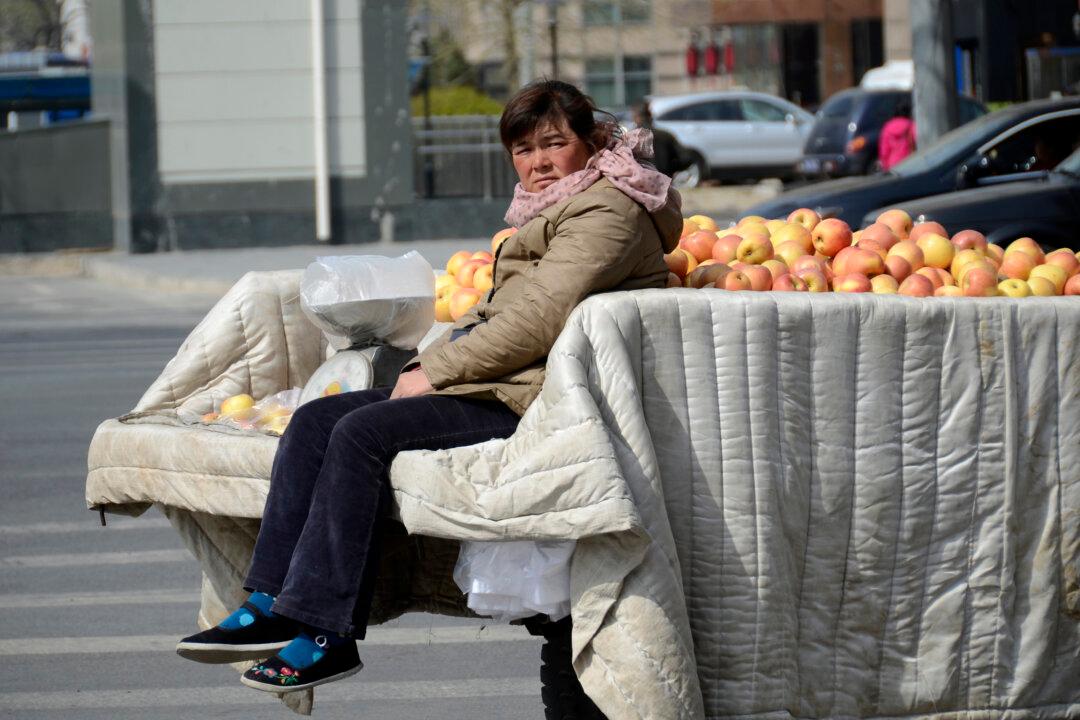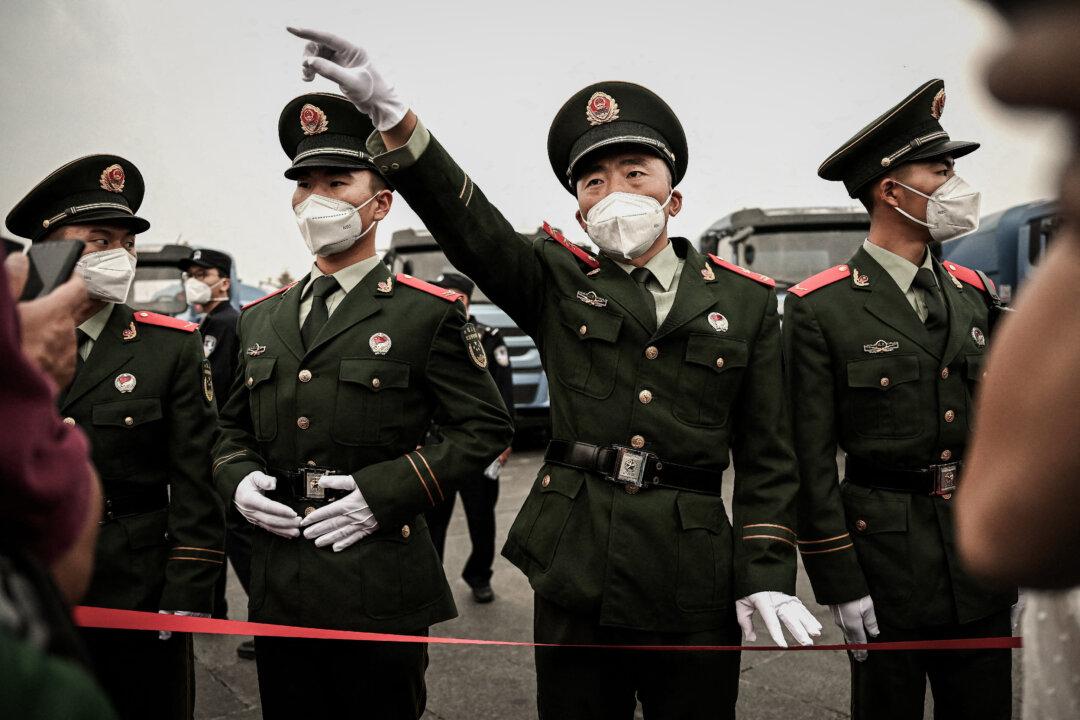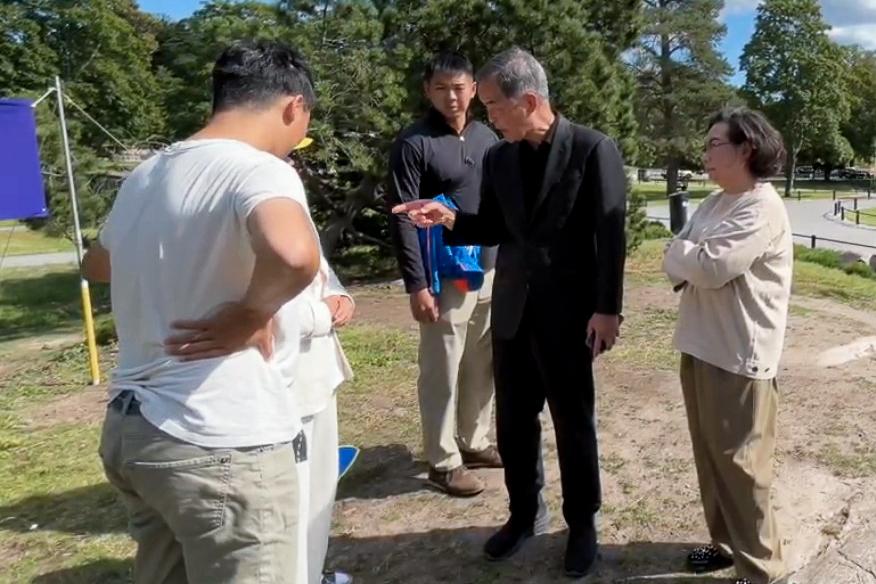Since assuming office in November, new Chinese Communist Party head Xi Jinping has pushed the idea of the China Dream. In a speech in May, he urged China’s young people “to dare to dream, to work assiduously to fulfill the dreams and contribute to the revitalization of the nation.”
This happy talk was given a sharp rejoinder on July 18 on Twitter, as @tianleiwuwang (“the heavenly thunder doesn’t strike randomly”) tweeted: “If you have money, be careful not to become Zeng Chengjie. If you don’t have money, be careful not to become Deng Zhengjia. Don’t wait until you are crippled to become Ji Zhongxing; try to be Yang Jia while you still can.” Someone added: “China Dream.”
For most Westerners, these names are hard to remember. Their stories, except for that of Yang Jia, became the hottest topics on the Chinese Internet this past week.
Illegal Execution
Zeng Chengjie was sentenced to death on May 20, 2011, for “illegal fundraising” by the Changsha Intermediate Court in Hunan Province. His appeal was denied by the Hunan Provincial High Court seven months later. The Supreme Court confirmed the death sentence on June 14, 2013.
On July 12, the Changsha Intermediate Court carried out the execution without notifying his family members, which is required by law. Zeng’s second daughter only got his ashes from the court several days later. She protested on Weibo and won widespread support.
The Changsha Intermediate Court and later the Hunan High Court tried to defend their illegal actions. The Changsha Intermediate Court claimed that the law doesn’t require notifying the family members, which is a lie.
Then the court claimed that Zeng didn’t ask for family notification, which doesn’t justify the court’s failure to notify the family.
When the explanations made the public increasingly furious, the Hunan High Court made things worse by saying that the family members’ contact information was not on file. Considering that the case had lasted for more than two years and Zeng’s wife and another daughter were still under police custody, no one believed a single word the court said.
By this time, legal professionals had joined the public in anger at the Hunan authorities.
The rush to execute Zeng in secret has suggested horrible reasons lay behind the court’s actions.
The first hypothesis raised on the Chinese Internet was that Zeng’s organs matched those needed by an important patient for transplantation.
The second possibility was that a high-ranking official wanted him to cover up the real cause of his death. Zeng could have died due to mistreatment, torture, or even murder. Hunan is notorious for making dissidents commit “suicide.”
Another possibility: One of the unnamed prosecutors claimed that execution without notifying the family is routine in China. It’s just that most families choose to keep quiet.
To the Slaughter
Once public attention focused on this case, netizens dug up more and more information. Zeng epitomized the China Dream, which the Chinese regime wants the Chinese people to believe in.
He was a successful businessman encouraged and praised by local and even central authorities. He was honored for being among the Top Ten of the Second Session of China Enterprise Reform.
Several years ago, he was invited, together with others, by the Shishou City administration to take part in city projects. Zeng raised capital for city projects backed by the city government. His luck changed when the head of the local government changed.
The new leadership seemed to dislike the previous leaders’ way of doing business or simply wanted to get rich overnight. The project stopped, and the fund was declared to be illegally raised. When Zeng was arrested and put under investigation, the local government seized his business and auctioned all his properties.
His property’s value was more than double his debt, but the city appraised the properties as worth much less than his debt. A city-owned company conducted the auction. The whole process assured that Zeng would have no chance to pay the debt, which could reduce or even quit the charges against him.
All the investors, including Zeng Chengjie, were bankrupted, with Zeng the scapegoat. The local government, or the officials who are the real owners of the winning company, profiteered off the sale. The officials seized billions of wealth, with the consequence that Zeng Chengjie must die.
Zeng Chengjie’s case is not the only one. In China, the Hurun Wealth Report every year lists China’s richest. Sometimes this list is called the slaughter list.
Many rich people who, like Zeng Chengjie, don’t have a powerful background, are quickly convicted and their property confiscated. The real rich people are the “princelings”—the children of the founding generation of the Chinese Communist Party (CCP), but they never appear on the richest list. They keep a low profile and are never investigated nor convicted.
The private businessmen, once their wealth reaches a certain level, are like the pigs farmers raise only for the sake of slaughtering them for meat.
In China, people call this “killing the rich for their wealth.” The CCP did this before it took power in China. In doing so now, the CCP officials seem to be saying their power is not going to last very long and so they have to act like bandits.
In China, everything is done by “policy,” not the rule of law. That makes normal business a high-risk adventure. The system is designed this way. A company must break the law to do business, without exception, whether Chinese or Western.
The law is used selectively by either central or local officials to strike, either for political or economic purposes. Nobody knows who will fall next. Twenty years ago, people said that the CCP’s policy changes like the shape of the moon. Zeng Chengjie fell into this trap. Well, so, too, did the giant Glaxo Smith Kline.
‘Don’t Have Money’
Like Zeng Chengjie, the second and third people mentioned in the July 18 tweet, Deng Zhegjie and Ji Zhongxing, had each embraced the China Dream in their own way, before all the talk of such a dream had started.
Deng Zhengjie was a farmer who made a living selling watermelons raised by his own hand. He died on July 17, having been beaten by six Chengguans and suffering brain damage. Witnesses said the Chengguans—thugs employed by city governments to enforce regulations—beat Deng with the steel counterweight used to weigh his melons.
In China, the war between the Chengguans and the street vendors is a daily scene in most cities. Deng’s case is just one typical example of those who “don’t have money.”
Ji Zhongxing’s story is also very similar to many others and familiar to most Chinese. Ten years ago, like many Chinese from the villages, he went to Dongguan in southern China’s Guangdong Province, the bustling center of economic reform, seeking a better life.
He began driving a Modi, a motorcycle taxi. One day, Ji Zhongxing and his passenger were caught by local security and beaten by seven to eight guards. Ji was left paralyzed. For the next eight years, he visited numerous state offices in vain.
Finally, on July 20, he decided to blow himself up at the Beijing Airport. While making sure his attempted suicide at least could not be ignored, he still managed to ask the people around him to evacuate. He survived, losing one arm, and nobody else was injured.
With more than 100 million people having lost their land or home or suffered other social injustices, the question is not how to prevent a case like Ji’s from happening again but where and when the next one will be.
Or there is the case of Yang Jia, which the tweet recommends. In 2008, on July 1—the date marking the founding of the CCP—Yang stabbed six Shanghai policemen to death in revenge for mistreatment he had received.
The China Dream looks like this to many Chinese: the opportunity to get fattened and slaughtered, the dream of having a steel bar crush one’s skull for having tried to make a living, an assiduously arranged suicide that does not interfere with the revitalization of the nation, or the chance to rip a policeman’s gullet with a knife.





